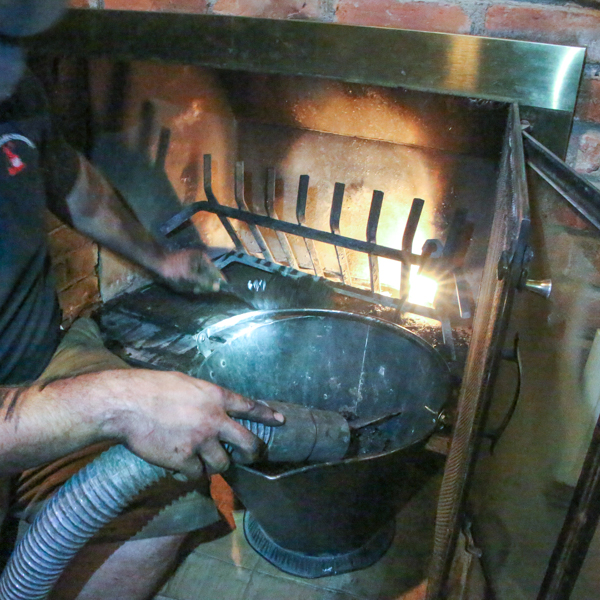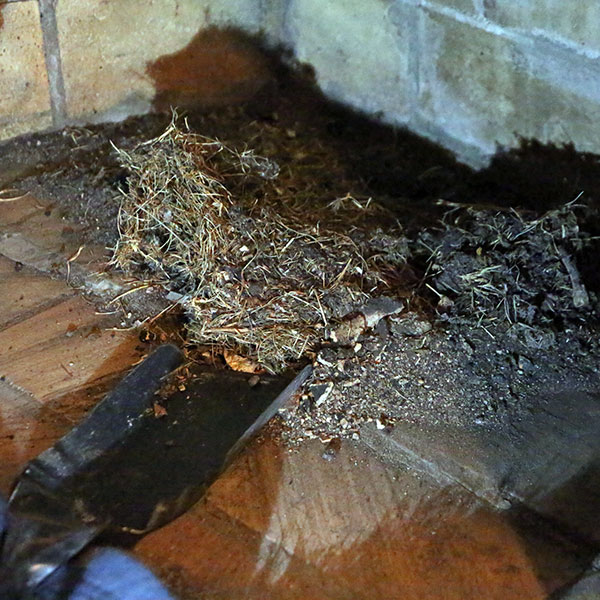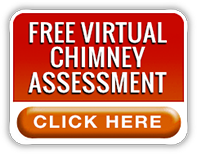FAQs About Chimney & Fireplaces for Your Home
The fireplace and chimney are essential features found in many homes across the Hudson Valley. Whether you have a wood-burning or gas fireplace, have multiple heating appliances, or are no longer using the fireplace, you may be wondering when to clean the chimney or if it needs an inspection. Here are five common FAQs about chimneys and fireplaces.
 How Do You Know When the Chimney Needs Sweeping?
How Do You Know When the Chimney Needs Sweeping?
It’s not always easy for homeowners to determine if the chimney needs to be cleaned, which is why annual chimney inspections are so vital. During the inspection, the chimney sweep will check for soot and creosote build-up to help determine if cleaning is necessary. According to the Chimney Safety Institute of America (CSIA), an 1/8″ or more accumulation of creosote is hazardous and should be removed. However, if you notice oily or black stains in or around the fireplace, unpleasant odors, falling soot, smokey or poor burning fires, those are signs that your chimney needs sweeping. Also, if you hear or suspect animals in the chimney, avoid using the fireplace and contact a professional chimney sweep right away.
How Often Should I Clean the Fireplace?
Your fireplace will typically require additional cleanings between professional sweepings. Too much ash in the fireplace can hinder performance, so when they start to pile up and reach the grate, it’s time to clean the fireplace. Wait until the fireplace is completely cool and the ashes are no longer warm. Always wear protective clothing like a facemask and goggles when cleaning the fireplace. Then remove the andirons and grate and use a fireplace shovel to scoop the ashes into a metal container. Next, sweep or vacuum any remaining debris in the firebox. Use an all-purpose cleaner or mild detergent and a medium-bristle brush to remove soot and dark stains on the interior masonry walls and rinse with water. Clean the grate and andirons outside to remove soot, creosote, and stains. Finally, place a thin 1-inch layer of ash on the firebox floor and replace the andirons and grate.
Does an Unused Fireplace Need to Be Inspected?
Yes, annual chimney inspections are necessary even if you are no longer using the fireplace for several reasons. First, the chimney is part of your home’s ventilation system. Therefore, unrepaired masonry damage will continue to worsen and could ultimately lead to a partial or complete chimney collapse that can damage your roof and home. Second, your chimney is susceptible to moisture intrusion that will not only accelerate masonry damage but also attract mold, mildew, and bacteria that can spread to other parts of your home, potentially causing health issues. Third, small animals, pests, and debris may accumulate in an unchecked chimney that can give your home a powerful stench. They can also use the chimney and fireplace to get inside your attic and house. Finally, if you have other heating appliances like a gas or oil furnace or water heater, its flue is likely connected to the same chimney as for your unused fireplace. Its safety and performance depend on a clean and safe chimney.
 Why Does My Fireplace Smell Bad?
Why Does My Fireplace Smell Bad?
A smelly fireplace is often a sign that your chimney needs cleaning, but it can also indicate the presence of moisture in the chimney either due to a water leak or condensation. The build-up up of creosote, soot, small animals or pests, leaves, and debris in the chimney can cause a pungent odor to permeate through the interior masonry and into your home. In addition, the air and moisture in the chimney can accelerate the decomposition of organic matter, amplifying the odor further. Also, you may smell a musty odor near the fireplace if mold spores grow in the chimney and fireplace.
Do I Need a Chimney Sweep for a Gas Fireplace?
While gas fireplaces burn cleaner and require less frequent cleaning than a wood-burning fireplace, annual chimney inspections are still required, according to the National Fire Protection Association (NFPA). The chimney inspection is necessary to check for chimney obstructions, like nests and debris that can interfere with the venting of harmful gases, including carbon monoxide. The chimney sweep also inspects the chimney for structural issues that could lead to expensive repairs.








